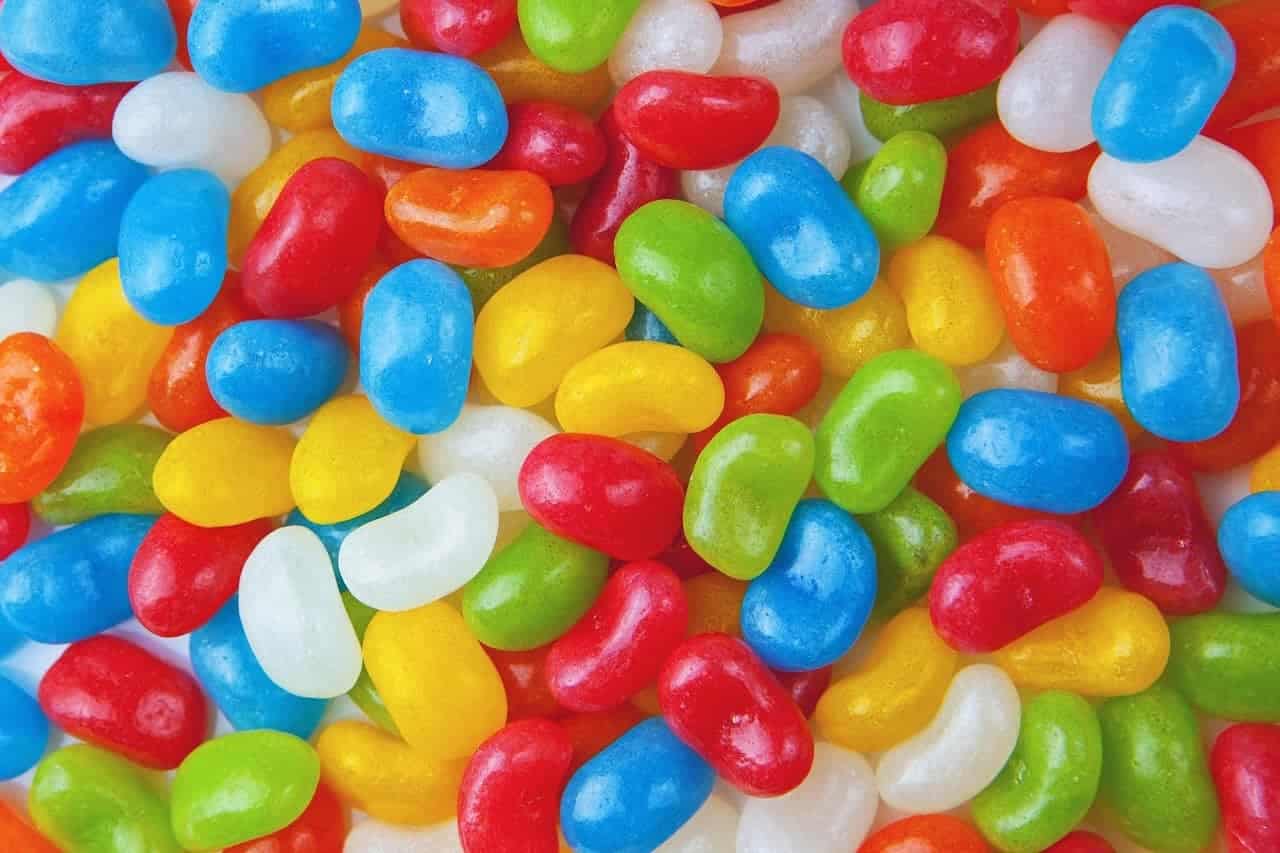by: Krista Hillis B.A.Sc Psychology and Neuroscience
We often view mental health issues as an ‘adult’ problem, but the unfortunate reality is, children also suffer from mood disorders and other mental health conditions. In fact, mental disorders among children have continued to increase, with approximately 13 to 20 percent of children affected on an annual basis.
The Link Between Mood Disorders and Children
When a child exhibits poor mental health, this essentially means that they experiencing serious deviations from their expected development. This includes social, emotional, and cognitive development. Although there is a direct correlation between mental health and poverty, we must also focus on our food system.
You know the old saying, you are what you eat? Well, this could not be more accurate. Considering nearly 1 in 3 American children are now considered to be overweight or obese, it’s clear that there’s a disconnect between nutrition and overall well-being.
It’s well understood that individuals in the Western world are deficient in key vitamins, minerals, and omega-3 fatty acids — and this is exceptionally true among those with mental health disorders. Of course, food can be thy medicine, but it can also act as your worst enemy.
If you have children and would like to protect their mental health, start with their diet. Besides eating plenty of fresh, local whole foods, be sure to significantly reduce or eliminate the following mood-affecting foods within your child’s diet.
1. Sugar + artificial sweeteners

There’s a reason why kids love Halloween so much. Sure, it’s fun to dress up, but what they’re truly after, is a big bag of candy. According to the USDA, the average child under 12 typically consumes around 49 pounds of sugar each year. We know that sugar is linked to conditions such as diabetes, but what about mood?
When consuming an excess of sugar, this often leads to highs and lows regarding one’s blood glucose levels. This roller coaster effect can actually accentuate mood disorder symptoms. There are a number of theories regarding sugar’s impact on key hormones, but inflammation also plays a significant role.
More importantly, while focusing on children, high-sugar diets affect proteins that are needed for optimal brain development. In comparison, one study, published in Physiology and Behavior,found that when given a breakfast low in sugar and high in fiber, children can not only experience improved mood, but also improve their short-term memory and attention span at school.
So next time you are tempted to give your child a sugary snack to keep them busy at home or quiet in their car seat, just say no.
What you can do:
- Significantly reduce your child’s intake of candy, soda, processed baked goods, concentrated juices, ketchup, and other high-sugar foods.
- Swap white and even ‘whole wheat’ bread for low-processed, sprouted whole grain alternatives;
- Trade instant oatmeal for rolled oats;
- Eat more fresh fruit (avoiding fruit in syrup);
- and always pay attention to nutrition labels.
Nutrition facts: To get an idea of how much sugar we are consuming, just one can of cola yields 39 grams of sugar. That equates to more than 9 teaspoons. The American Heart Association recommends that children ages 2 to 18 should eat less than six teaspoons of added sugar daily — which is around 25 grams. Two tablespoons of ketchup will yield 7.4 grams of sugar — whereas one slice of whole-grain bread provides just 1.5 grams or less, in addition to fiber, iron, and protein.
2. Dairy

Lactose intolerance is nothing new, and if your child is, in fact, allergic to the proteins found in dairy, their mood may be affected. If this is the case, you may notice that your child is fairly irritable or even aggressive. They are also often more prone to common colds and ear infections.
The protein in dairy products, known as casein, is hard for the human body to digest. After reaching the gut, receptors react by creating antibodies. This causes the immune system to kick into high gear, leading to increased stress within the body. It has even been reported that when consuming more dairy, symptoms of autism worsen.
At the end of the day, the production of milk has changed a lot over the past few decades. Not only are dairy cows given a cocktail of hormones and antibiotics, but their milk is essentially void of natural vitamins and proteins. The truth is, milk consumption past infancy is actually rather unnatural.
If you’re concerned that your child will not get enough calcium, there are plenty of ways to ensure optimal intake. One cup of cooked kale, for instance, offers 25% of an adult’s recommended daily intake. The same is true for two ounces of sardines (21% DV) or 1.2 cups of broccoli (9% DV).
What you can do:
- Reduce your child’s intake of heavily processed dairy products,
- Eat more non-dairy sources of calcium, B-vitamins, and vitamin D, such as kale, mushrooms, broccoli, coconut yogurt, sardines, watercress, Kefir, bok choy, quality Greek yogurt, oats, and collards.
Nutrition facts: If you’re thinking, how will my child consume enough calcium, know that 100 grams of spinach yields 9% of the recommended DV. If your child likes sardines, 100 grams will yield 38% of the recommended DV of calcium, as well as their entire daily intake of vitamin B12.
3. Refined grains

Just like sugar, refined grains directly influence brain health. As inflammation increases, your mental health is directly impacted. The consumption of refined grains is known to produce inflammation of the gut, and since about 95 percent of serotonin (your ‘happy’ hormone) is produced in the gastrointestinal tract, this can lead to mood issues.
While studying the effects of refined carbs on health, one study found a clear link between refined grains and a higher risk of depression. In comparison, those who consumed more whole grains and produce, exhibited a lower risk. Instead of feeding your child processed foods and white bread, opt for steel-cut oatmeal, brown rice, quinoa, fruits and vegetables.
What you can do:
- Swap refined grains for whole grains. A whole grain will include the bran, endosperm and germ — whereas refined grains only include the endosperm.
- Eliminate white bread and pasta, as well as other foods made with ‘enriched white flour.’
- Opt for wild rice, buckwheat, quinoa, millet, barley, and even air-popped popcorn.
Nutrition facts: One slice of white bread will offer your child 0.7 grams of fiber and very few nutrients. In comparison, a slice of whole grain bread often yield 3+ grams of fiber, in addition to magnesium, B-complex vitamins, and protein.
4. Fast food

Kids most certainly recognize the ‘big M’ — but what are these foods doing to their health? When regularly consuming fast food, children can essentially get ‘addicted’ to this high-calorie diet. After eating a burger and fries, they likely experience a rush of dopamine — activating the brain’s reward system.
Children who eat fast food on a regular basis, are likely deficient in key nutrients. Unlike children who get plenty of antioxidants (from fruits and vegetables) and healthy fats (from wild-caught, cold-water fish), those who suffer from deficiencies, instantly increase their risk of depression, as well as sleep disturbances and poor digestion.
What you can do:
- Replace fast food with wholesome, home-cooked meals. You can eat well while managing your budget and time.
Nutrition facts: When consuming a small, single patty burger from a fast food restaurant, expect to consume around 250-300 calories. The equivalent in broccoli would be 10 cups — however, for that calorie intake, you would benefit from all of your daily recommended intake of fiber, vitamin C, vitamin A, and vitamin B6.
5. Any processed food

While focusing on the issues above, whether it be a high-sugar or high-fat diet, these problems can be traced back to processed foods. It’s well understood that processed foods lack the type of nutrition both children and adults require — and are also often packed with trans fats.
Unlike the type of healthy fat that comes from olive oil or nuts, trans fat has been linked to a range of health complications. Within one study, it was found that trans fat consumption led to a 48 percent increase in depression. The researchers concluded that both depression and cardiovascular disease may share common nutritional determinants, based on subtypes of fat.
The take-home message
Mood disorders are complex and although they are often caused by a combination of factors, your child’s diet is an ideal place to start. As they are exposed to fewer toxins, these imbalances become less likely — resulting in greater physical and mental health.
Focus on ‘brain foods’ that will allow your child to fully develop. Some ideas include salmon, organic eggs, whole grains, dark leafy greens, oats, berries, legumes, and plenty of water. Begin these healthy habits from day one, creating eating habits that set them up for a productive, happy life.
Sources
- Himes JH. Challenges of accurately measuring and using BMI and other indicators of obesity in children. Pediatrics. 2009 Sep. 124 Suppl 1:S3-22.
- World Health Organization. The WHO child growth standards. World Health Organization. Available at https://www.who.int/childgrowth/standards/en. Accessed: November 20, 2011.
- Schnabel L, Kesse-Guyot E, Allès B, et al. Association between ultraprocessed food consumption and risk of mortality among middle-aged adults in France.JAMA Intern Med. 2019.
You May Also Be Interested In








I know these food are good and healthy, but my 2 year old grandson’s parents are at their wit’s end as to how to make him eat fruits and veggies or even fish and meat. He’ll eat bread, with butter and marmite, or butter and honey. Anything else he wont even try or touch. As a concerned grandparent, we really don’t know what to do. Please help if you have any answers.
All these foods are bad for adults not to mention just developing kids’ bodies. I can’t see when young moms feed their little ones in strolles fries! I want to ask them: What are you doing?! Thanks for sharing the article, parents need to know what they do to their kids’ health when feeding like this.
Agreed 100%. Thanks for your feedback!
Hi, Krista
Thanks for well research content. My baby already addicted to fast food, just trying to keep away from eating more fast food. Will Focus on ‘brain foods’ that will allow my child to fully develop. As you mentioned to your article “Some ideas include salmon, organic eggs, whole grains, dark leafy greens, oats, berries, legumes, and plenty of water. Begin these healthy habits from day one, creating eating habits that set them up for a productive, happy life.” will follow the instructions. Thnaks for this great resource.
Have good day 🙂
Good for you! It’s never too late to start eating (and feeding your kids) healthy food!
I’m sure you’ll see the difference in your kids’ behavior.
Great summary – I think nutrition in kids is something that needs much greater attention.